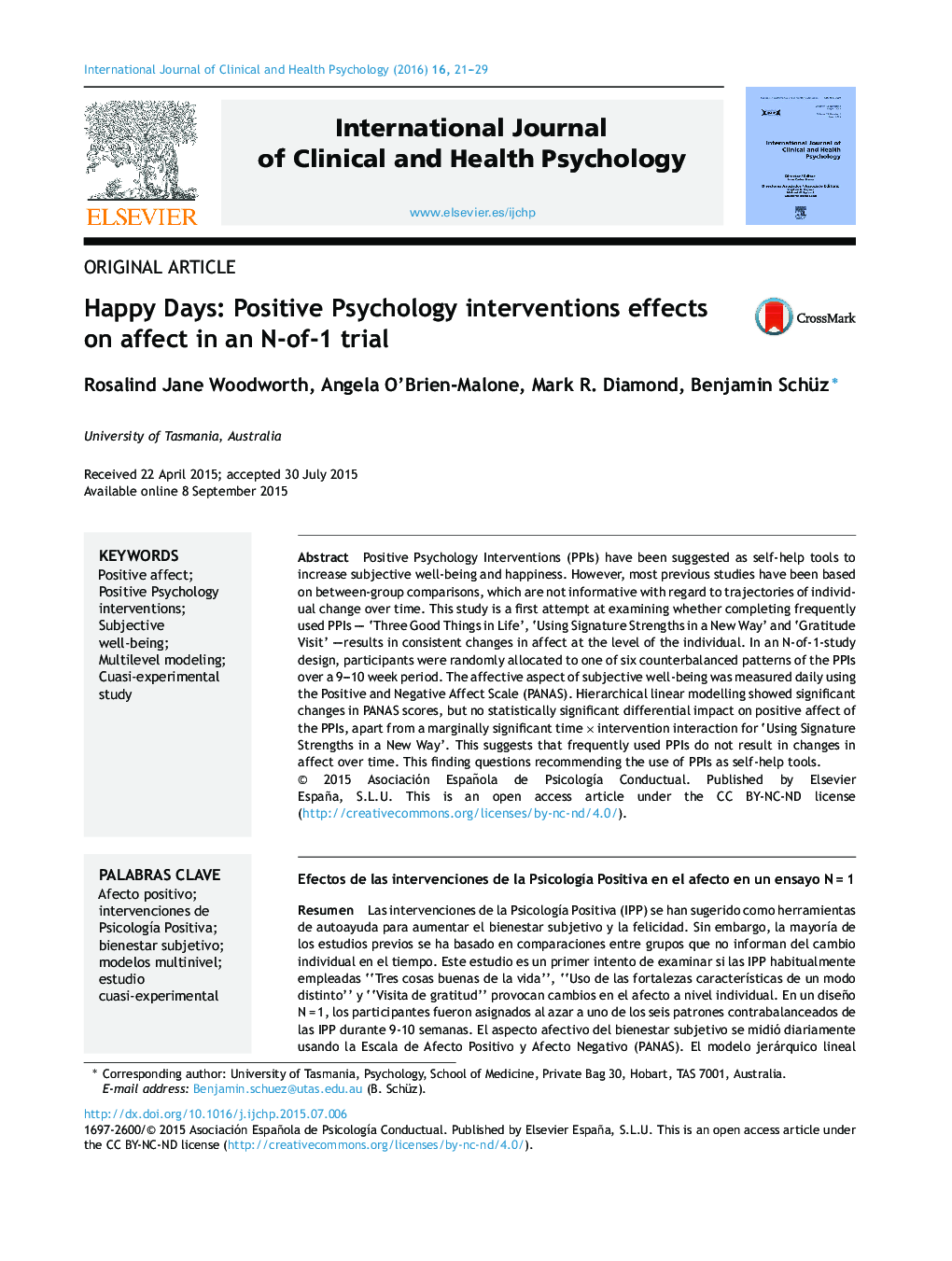| کد مقاله | کد نشریه | سال انتشار | مقاله انگلیسی | نسخه تمام متن |
|---|---|---|---|---|
| 879950 | 1471343 | 2016 | 9 صفحه PDF | دانلود رایگان |
Positive Psychology Interventions (PPIs) have been suggested as self-help tools to increase subjective well-being and happiness. However, most previous studies have been based on between-group comparisons, which are not informative with regard to trajectories of individual change over time. This study is a first attempt at examining whether completing frequently used PPIs — ‘Three Good Things in Life’, ‘Using Signature Strengths in a New Way’ and ‘Gratitude Visit’ —results in consistent changes in affect at the level of the individual. In an N-of-1-study design, participants were randomly allocated to one of six counterbalanced patterns of the PPIs over a 9–10 week period. The affective aspect of subjective well-being was measured daily using the Positive and Negative Affect Scale (PANAS). Hierarchical linear modelling showed significant changes in PANAS scores, but no statistically significant differential impact on positive affect of the PPIs, apart from a marginally significant time × intervention interaction for ‘Using Signature Strengths in a New Way’. This suggests that frequently used PPIs do not result in changes in affect over time. This finding questions recommending the use of PPIs as self-help tools.
ResumenLas intervenciones de la Psicología Positiva (IPP) se han sugerido como herramientas de autoayuda para aumentar el bienestar subjetivo y la felicidad. Sin embargo, la mayoría de los estudios previos se ha basado en comparaciones entre grupos que no informan del cambio individual en el tiempo. Este estudio es un primer intento de examinar si las IPP habitualmente empleadas “Tres cosas buenas de la vida”, “Uso de las fortalezas características de un modo distinto” y “Visita de gratitud” provocan cambios en el afecto a nivel individual. En un diseño N = 1, los participantes fueron asignados al azar a uno de los seis patrones contrabalanceados de las IPP durante 9-10 semanas. El aspecto afectivo del bienestar subjetivo se midió diariamente usando la Escala de Afecto Positivo y Afecto Negativo (PANAS). El modelo jerárquico lineal mostró cambios estadísticamente significativos en las puntuaciones PANAS, pero ningún efecto diferencial estadísticamente significativo en el afecto positivo, excepto la interacción tiempo x intervención para “fortalezas características”. Los resultados sugieren que las IPP empleadas habitualmente no provocan cambios en el afecto a lo largo del tiempo. Este hallazgo cuestiona el uso de las IPP como herramientas de autoayuda.
Journal: International Journal of Clinical and Health Psychology - Volume 16, Issue 1, January–April 2016, Pages 21–29
